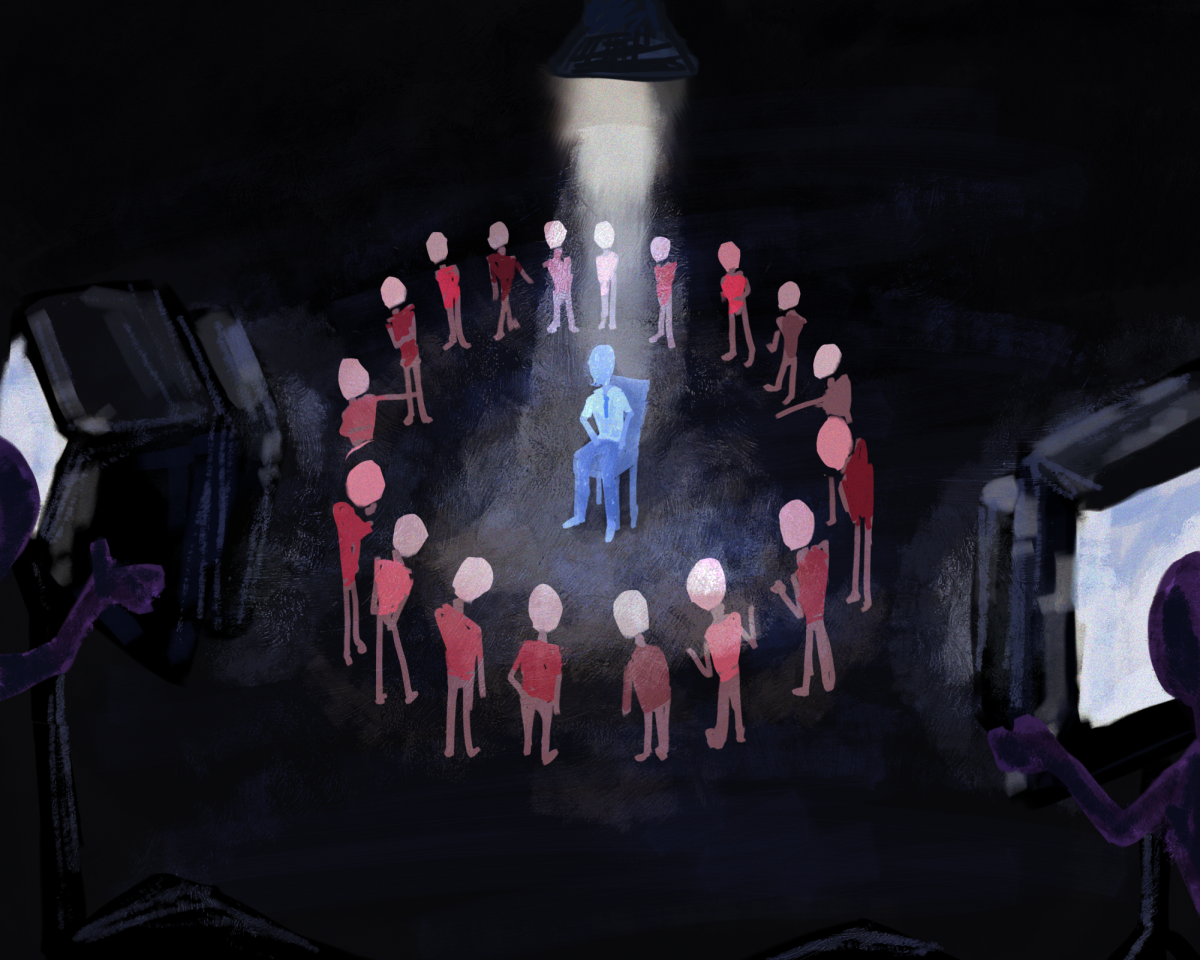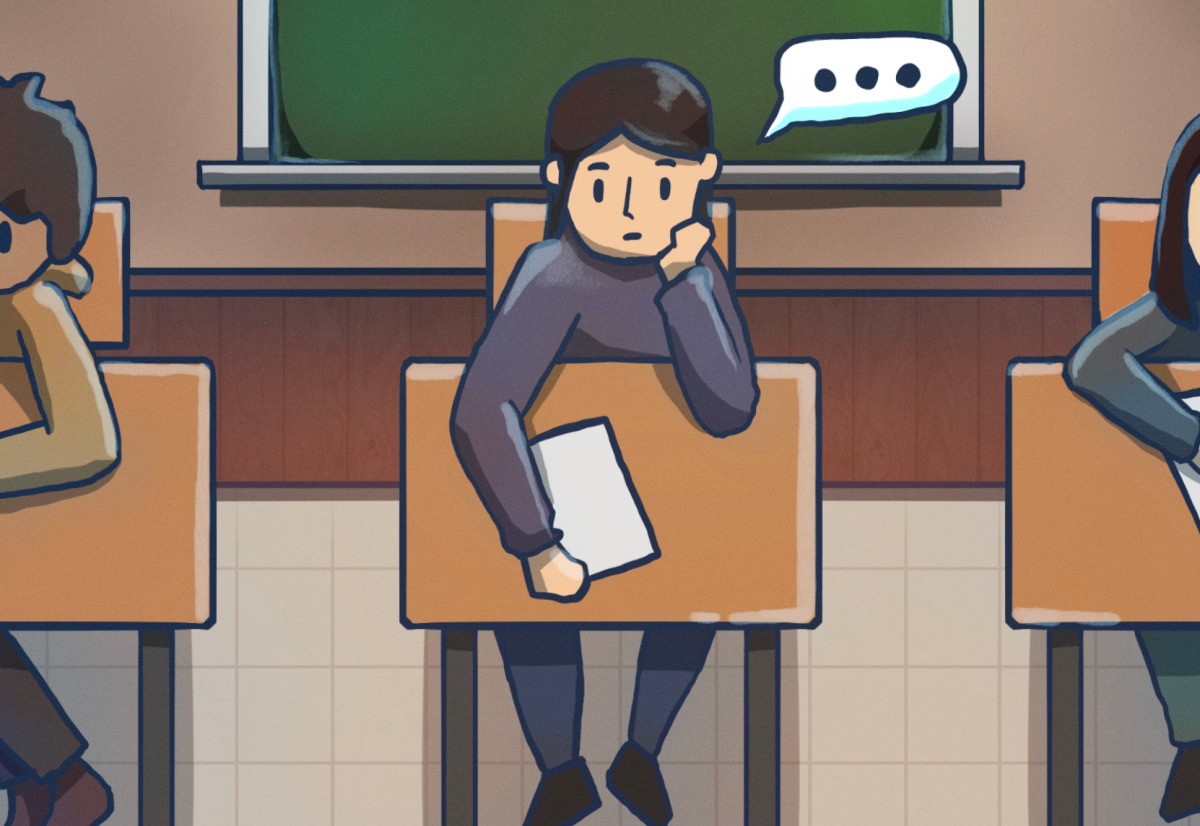
The dreaded time of year when your English teacher hands out a thick book full of confusing plot lines and incoherent text is upon us. English teachers, who have not been too terrible thus far, suddenly turn demonic when they make you read a play, memorize lines and then perform it.
As someone who has terrible stage fright—my voice shakes and black spots blur my vision—I hate performing, especially in front of my class.
Despite my lack of acting expertise, Shakespeare is still one of my favorite units in English. Who knows, maybe it’s because my parents have dragged my sisters and I to the theatre to see Hamlet’s soliloquy or Caesar’s epic death scene since before I can remember.
Memorizing Shakespeare, although tedious, is important for every student. It’s necessary to appreciate his language as well as perform the plays, which was how they were intended to be presented. Shakespeare has shaped our vocabulary, allowing us to express a wide range of emotions. Even if you’ve never read his plays, if you’ve ever said ‘brave new world,’ or ‘for goodness sake’ you’ve quoted him unknowingly.
Not only does reading Shakespeare help us grasp English better—anything to help me get an 800 on my Literature SAT Subject Test is welcomed—but there are parallels between Shakespeare’s language and other foreign languages.
According to BBC, Shakespeare created numerous new words by merging existing words and vocabulary from foreign languages in his plays. Knowing how to read Shakespeare can make learning and comprehending languages easier, according to the National Post. It was easy for me to read Shakespeare because the sentence structure and word choice is similar to German, which I learned growing up, which shows the overlap between Shakespearean language and foreign ones.
It doesn’t matter if you’re not going to a be a diplomat, which requires vast knowledge of languages, or an English professor who needs to be able to give lectures on the significance of Banquo’s death. Understanding Shakespeare is still a basic human skill appreciated by all fields.
Shakespeare also has immense influence on pop culture. It helps us remember where contemporary literary motifs stemmed from and how far we’ve progressed. If anything, it’s cool to know that J.K. Rowling has Macbeth dusted throughout Harry Potter—from songs in the movies to the band called the Weird Sisters—and that major motion pictures and T.V. shows reflect Shakespearean characters.
So nerd out with me and let’s get excited to read Shakespeare instead of resenting it.
Something wicked this way comes. This line of Shakespeare—the only one I know—accurately sums up how I feel as teachers hand out yet another Shakespeare play. I don’t appreciate the iambic pentameter, the language confuses me and the characters morph into unidentifiable clones.
To help anti-Shakespeareans like myself overcome our struggle with the famous playwright, teachers shouldn’t cram a specific scene into our brains and force us to memorize lines but instead emphasize a deeper understanding of an entire work by going through each scene as a class.
Going through each scene together allows students to better understand the plays’ collective significance without the fragmentation of breaking up the class’ focus between scenes. This year in AP Lang, we studied Macbeth. With minimal class discussion and a few reading-quote tests, the unit culminated in a final project that required group presentations of one scene from the play.
Throughout the process, I learned about 30 lines of Elizabethan era text as well as how to make dry ice look like a bubbling cauldron. My actual knowledge of what happened in the play, however, remained limited to a few summaries on ‘No Fear Shakespeare’ and our brief class discussions.
My discomfort with Shakespeare hasn’t been eased with the memorized “thous” and “doths.” If anything, I have come to dread the Shakespeare time-of-year more than any cringe-worthy research paper. As I stress over remembering lines and syllables, I ignore the elaborate plot and literary merit. And after regurgitating the terribly pronounced and misunderstood language, I revert back to my completely clueless and ever-frustrated state with Shakespeare.
With a greater focus on the larger and complete meaning of Shakespeare’s works, students like me have a greater chance of understanding the deeper significance of the plays that justifies their teaching four hundred years later.
Rote memorization has a place in school; there is no denying that memorization is required to exercise and challenge the brain. But there are countless other places memorization makes its way into education, whether it be events in history, calculus formulas or chemical processes. While these memorized prophesies are required for conceptual learning in their respective classes, lines in an out-of-date language are not the key to understanding Shakespeare.
Make me track a theme, read a script in front of the class or prepare an essay relating “Romeo and Juliet” to the Cold freaking War, but my gosh, please don’t make me memorize “Thrice the brinded cat hath mew’d,” because no matter how many times I read it, I still have no clue what it means.









Susan Knappertz • Jun 16, 2016 at 11:40 am
Nice Article.